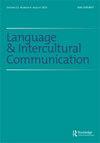禁酒令是对抗反乌克兰电影的一种方法
IF 2.2
1区 文学
0 LANGUAGE & LINGUISTICS
引用次数: 0
摘要
目的。本研究旨在揭示乌克兰将禁播作为对抗俄罗斯反乌克兰宣传电影的一种方法的经验。方法。演绎技术作为一种基于所分析事实的复合体进行逻辑总结的过程,已经得到了广泛的应用。结果。俄罗斯对乌克兰的电影式信息侵略始于2000年普京上台后。考虑到电视是绝大多数俄罗斯人最受欢迎的信息来源这一事实,可以说,俄罗斯的宣传电影,作为普京政策的产物,在煽动俄罗斯人民的侵略方面发挥了最后的作用。讨论。自2000年以来,俄罗斯电影制作开始积极关注自身权力结构的普及,制作宣传战争的电影,旨在煽动种族间、宗教间的侵略,羞辱乌克兰民族,羞辱个人等,这些电影一直在升温俄罗斯对乌克兰的侵略,为俄罗斯人民准备与乌克兰的战争。这些电影极有可能形成观众的神话思维和刻板印象。实践证明,引入禁止令作为对抗反乌宣传电影的一种手段是相当有效的防御手段。本文章由计算机程序翻译,如有差异,请以英文原文为准。
Prohibition as a method of struggle against anti-Ukrainian films
Purpose. This study aims to reveal the experience of Ukraine in banning as a method of struggle against Russian propagandist anti-Ukrainian films.
Methods. Deduction technique as a process of logical concluding based on the complex of analyzed facts as well as summarizing have been applied.
Results. Cinematographic informational aggression of Russia against Ukraine began in 2000 with the coming to power of V. Putin. Taking into consideration the fact, that it is television which is the most popular source of information for the absolute majority of Russians it can be claimed that Russian propagandistic films, which are very products of Putin’s policy, played not the last role in inciting aggression among Russian population.
Discussion. Since 2000 Russian cinema production has started to actively focus on popularization of their own power structures and producing films propagating war, aiming at inciting of inter-ethnical, religious aggression, humiliation of Ukrainian nation, humiliation of an individual etc. the films have been heating up Russian’s aggression against Ukrainians and preparing Russia’s population for the war with Ukraine. These films possess great potential to form mythological thinking and stereotyping of viewers’ views.
Practice has proved that introducing prohibitions as a method of struggle against anti-Ukrainian propagandist films is quite an effective method of defense.
求助全文
通过发布文献求助,成功后即可免费获取论文全文。
去求助
来源期刊

Language and Intercultural Communication
Multiple-
CiteScore
3.00
自引率
47.40%
发文量
50
期刊介绍:
Language & Intercultural Communication promotes an interdisciplinary understanding of the interplay between language and intercultural communication. It therefore welcomes research into intercultural communication, particularly where it explores the importance of linguistic aspects; and research into language, especially the learning of foreign languages, where it explores the importance of intercultural perspectives. The journal is alert to the implications for education, especially higher education, and for language learning and teaching. It is also receptive to research on the frontiers between languages and cultures, and on the implications of linguistic and intercultural issues for the world of work.
 求助内容:
求助内容: 应助结果提醒方式:
应助结果提醒方式:


